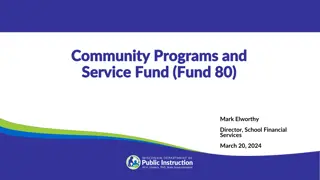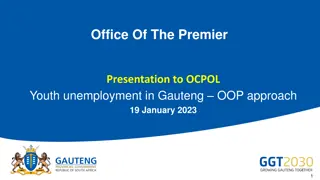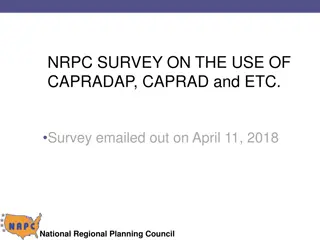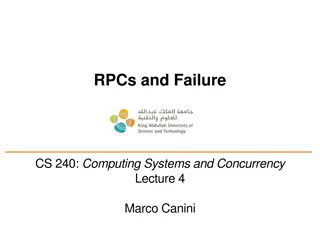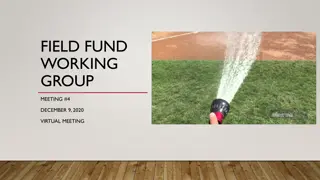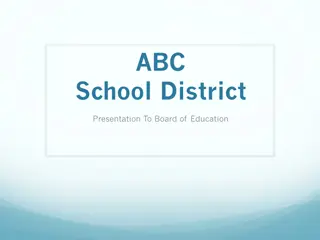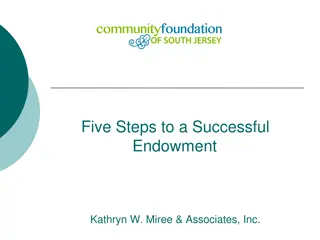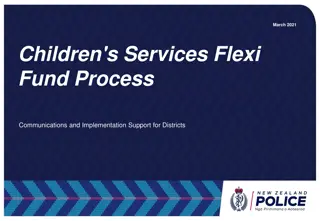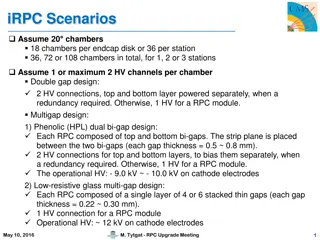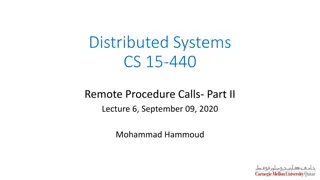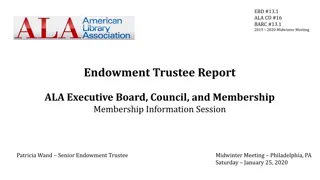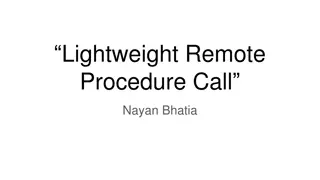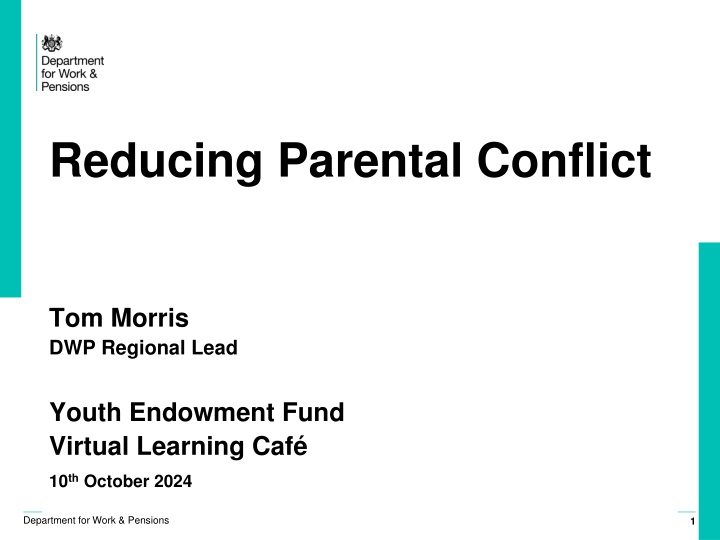
Reducing Parental Conflict: Regional Leads Supporting Local Authorities
Learn about reducing parental conflict with the Department for Work & Pensions' Regional Lead Youth Endowment Fund. Explore the harmful effects of conflict and domestic abuse, and the current progress in integrating RPC practices at the local level. Discover the role of Regional Leads in promoting open communication and resolving conflicts effectively to support families and children.
Download Presentation

Please find below an Image/Link to download the presentation.
The content on the website is provided AS IS for your information and personal use only. It may not be sold, licensed, or shared on other websites without obtaining consent from the author. If you encounter any issues during the download, it is possible that the publisher has removed the file from their server.
You are allowed to download the files provided on this website for personal or commercial use, subject to the condition that they are used lawfully. All files are the property of their respective owners.
The content on the website is provided AS IS for your information and personal use only. It may not be sold, licensed, or shared on other websites without obtaining consent from the author.
E N D
Presentation Transcript
Reducing Parental Conflict Tom Morris DWP Regional Lead Youth Endowment Fund Virtual Learning Caf 10th October 2024 Department for Work & Pensions 1
Content A national perspective of RPC A picture of the role of Regional Leads in supporting Local Authorities Current progress with LAs Department for Work & Pensions 2
Phase 2 of RPC What is Parental Conflict? HARMFUL PARENTAL CONFLICT Conflict is frequent and intense and is often left poorly resolved. There is a lack of open communication and topics of conflict are frequently revisited. Children may be caught in the middle of the conflict and be impacted by their frequent exposure to intense conflict. There is no physical violence and no significant power imbalance. DOMESTIC ABUSE An imbalance of power with one parent using coercion and control against the other. May include some or all of the following: Physical violence leading to injuries, intimidation or threats, emotional abuse, sexual abuse, financial abuse or pervasive harassment. Perpetrators are 100% responsible for their abuse. Mediation for parents in conflict: One minute guide (towerhamlets.gov.uk) Department for Work & Pensions 3
Phase 2 of RPC Phase 2 of RPC RPC sits in Poverty, Housing, and Disadvantage, Policy Group, DWP The current phase of the RPC programme began in April 2022 and is due to run until March 2025. The Local Grant is the primary mechanism used to encourage LAs to continue to: 1. Integrate RPC focused practice and organisation into local area services for children and families 2. Build the capability of frontline practitioners who support parents and families 3. Improve the overall RPC support offer for families. Department for Work & Pensions 4
RPC National Context DfE (previously DLUC) 1. Supporting Families: The National Supporting Families Outcome Framework includes Improved family relationships 2. Family Hubs: DfE Staff in the family hub are aware of the evidence on the impact of parental conflict, can identify it, can distinguish it from domestic abuse, and provide universal level support and initial early support 3. Start for Life: DHSC parental conflict can impact on the mental health of the baby 4. Families first for children (FFC) pathfinder programme: DfE Greater use of family networks, bringing together SF, FH, RPC, and the Strengthening families, protecting children (SFPC) programme 5. Family Courts: MoJ Targeted guidance for earlier resolution of family disputes and the use of non-court remedies. The MoJ is proposing a package of reforms to put conflict resolution and children s welfare first at every stage of a separation. Department for Work & Pensions 5
Role of the RPC Regional Lead Role of the RPC Regional Lead Encourage and support the use of DWP funding for Training, Delivery, and Co-ordination, and to monitor local spend to maximise take up and ensure value for money Support individual local authorities through 1:1 meetings Support regional networks through the delivery of Communities of Practice. Promote and engage with cross-departmental programmes and other national providers, such as Supporting Families, Family Hubs, and Foundations. Department for Work & Pensions 6
Continuum of Services Relevant services Levels of Need Posters, videos, info screens, public advertisements, leaflets in GP surgeries, job centres, family hubs, relevant websites, council offices, libraries, inclusion in school curriculum, police stations, sports clubs Universal Plus Universal Registry offices, antenatal classes, health visitors, GPs, Family Hub drop ins, childminders, nurseries, youth centres, voluntary sector, SENCos, faith groups, school nurses, online sources of information and advice, apps Early Help, children's centres and Family Hubs, voluntary sector services, virtual support, health visitors, CAMHS, mediation services, parenting groups, MASH/Front Door, Education Welfare, Family Group Conference Children with Disabilities Teams, Social Workers, Early Help, Family Support Workers, CAMHS, Adult Mental Health, Adult Social Care, Drug and Alcohol services Child Protection Targeted Social Workers, Family Group Conference, Permanence teams, support for Foster Carers, Kinship Carers, Special Guardians, and adoptive parents, CAFCASS. Child in Need
Current Data from Management Information (MI) In Y1, 41,837 professionals were trained in RPC, 48,235 in Y2, and a planned 43,183 in Y3. In Y1, 6,425 people received support for RPC through Grant funding, rising to 22,886 in Y2, with a projected 56,246 planned for Yr3. This does not include the number of people supported through 1:1 work with families in Early Help or CSC, or support provided by third sector who have received training Department for Work & Pensions 8
Examples of good practice in RPC 1. LAs across Yorkshire and Humberside have formed a website development partnership and will develop and share resources, promotional materials, and adverts for RPC. 2. Lambeth delivered training to differentiate parental conflict from domestic abuse 3. Havering has placed RPC at the forefront of the referral process, with allocated workers in MASH picking up referrals at the Front Door where RPC is the primary concern and offering short-term intervention and advice to prevent escalation to EH or CSC 4. Worcestershire has worked in partnership with the 0-19 Public Health Nursing workforce, training 120 health professionals in RPC. They now offer parenting courses delivered under the wider Starting Well Partnership, meaning that health staff can offer parents evidence-based courses inclusive of RPC 5. Rutland has a strong focus on engagement with Military Forces based on local need. They have worked with Amity to develop tailored training for military families. 6. Cornwall includes RPC as part of their mandatory training for new staff 7. Dudley has produced a range of short videos demonstrating children s experience of parental conflict https://www.dudleyparents.co.uk/files/videos/Final/01_dudley_pcr_teenage_girl.mp4 Department for Work & Pensions 9
Useful resources www.reducingparentalconflict.eif.org.uk https://raceequalityfoundation.org.uk/parentalconflict https://www.gov.uk/guidance/reducing-parental-conflict-what- is-parental-conflict https://khub.net/group/reducing-parental-conflict Department for Work & Pensions 10




